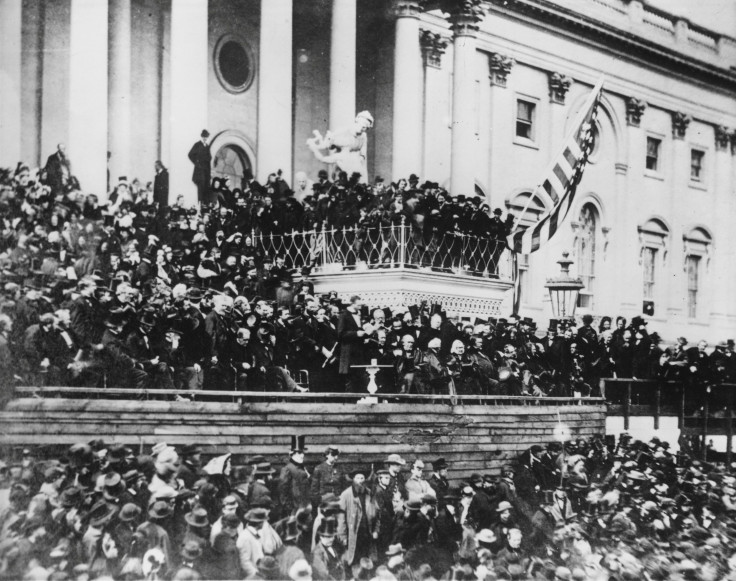National Freedom Day 2017: Top Quotes By Abraham Lincoln To Commemorate The Signing Of Amendment Ending Slavery

National Freedom Day is celebrated on Feb. 1 each year to commemorate the day on which President Abraham Lincoln approved a resolution of Congress that would eventually end slavery through the 13th Amendment to the U.S. Constitution.
Lincoln signed the joint congressional resolution proposing the 13th Amendment on Feb. 1, 1865. However, the number of states needed to ratify the amendment was only reached on Dec. 6, 1865.
National Freedom Day is neither as widely celebrated as July 4th nor is a public or federal holiday, but it holds great significance for millions of people who are descendants of American slaves. While there are no big celebrations scheduled to mark this day, there is typically a wreath-laying ceremony at the Liberty Bell in Philadelphia, which was the former capital of the United States.
Here are some notable quotes by Lincoln to mark the beginning of the end of slavery:
“On the question of liberty, as a principle, we are not what we have been. When we were the political slaves of King George, and wanted to be free, we called the maxim that “all men are created equal” a self evident truth; but now when we have grown fat, and have lost all dread of being slaves ourselves, we have become so greedy to be masters that we call the same maxim “a self evident lie.””
— Letter to George Robertson, Aug. 15, 1855
“I leave you, hoping that the lamp of liberty will burn in your bosoms until there shall no longer be a doubt that all men are created free and equal.”
— Speech at Chicago, Illinois, July 10, 1858
“This is a world of compensations; and he who would be no slave, must consent to have no slave. Those who deny freedom to others, deserve it not for themselves; and, under a just God, can not long retain it.”
— Letter to Henry Pierce, April 6, 1859
“Four score and seven years ago our fathers brought forth on this continent, a new nation, conceived in Liberty, and dedicated to the proposition that all men are created equal.”
—Gettysburg Address, Nov. 19, 1863
“And by virtue of the power, and for the purpose aforesaid, I do order and declare that all persons held as slaves within said designated States, and parts of States, are, and henceforward shall be free; and that the Executive government of the United States, including the military and naval authorities thereof, will recognize and maintain the freedom of said persons.”
— Emancipation Proclamation, Jan. 1, 1863
“And upon this act, sincerely believed to be an act of justice, warranted by the Constitution, upon military necessity, I invoke the considerate judgment of mankind, and the gracious favor of Almighty God.”
— Emancipation Proclamation, Jan. 1, 1863
“I have very earnestly urged the slave-states to adopt emancipation; and it ought to be, and is an object with me not to overthrow, or thwart what any of them may in good faith do, to that end.”
— Letter to John M. Schofield, June 23, 1863
“You dislike the emancipation proclamation; and, perhaps, would have it retracted. You say it is unconstitutional — I think differently.”
— Letter to James Conkling, Aug. 26, 18 63
© Copyright IBTimes 2025. All rights reserved.






















